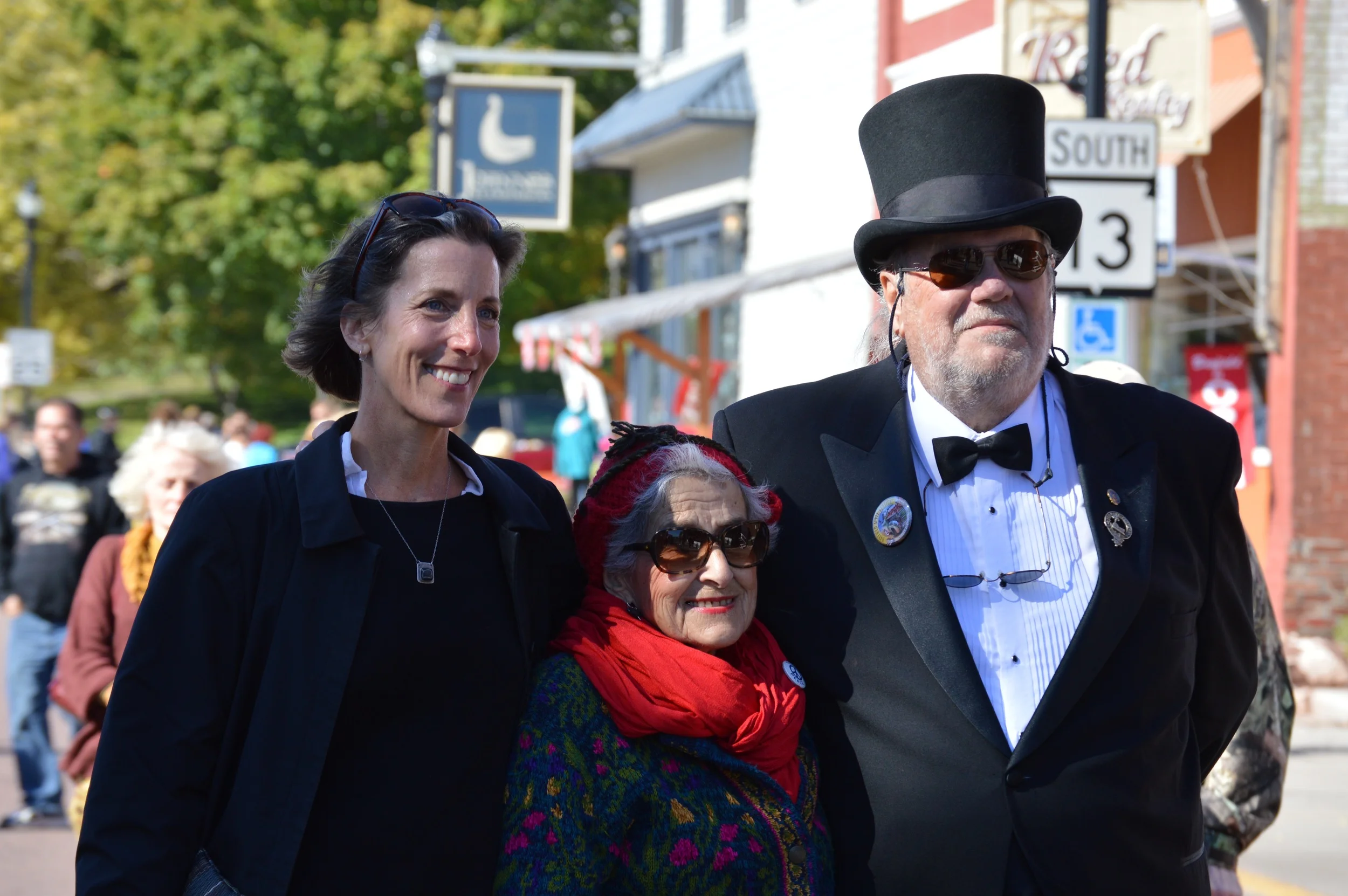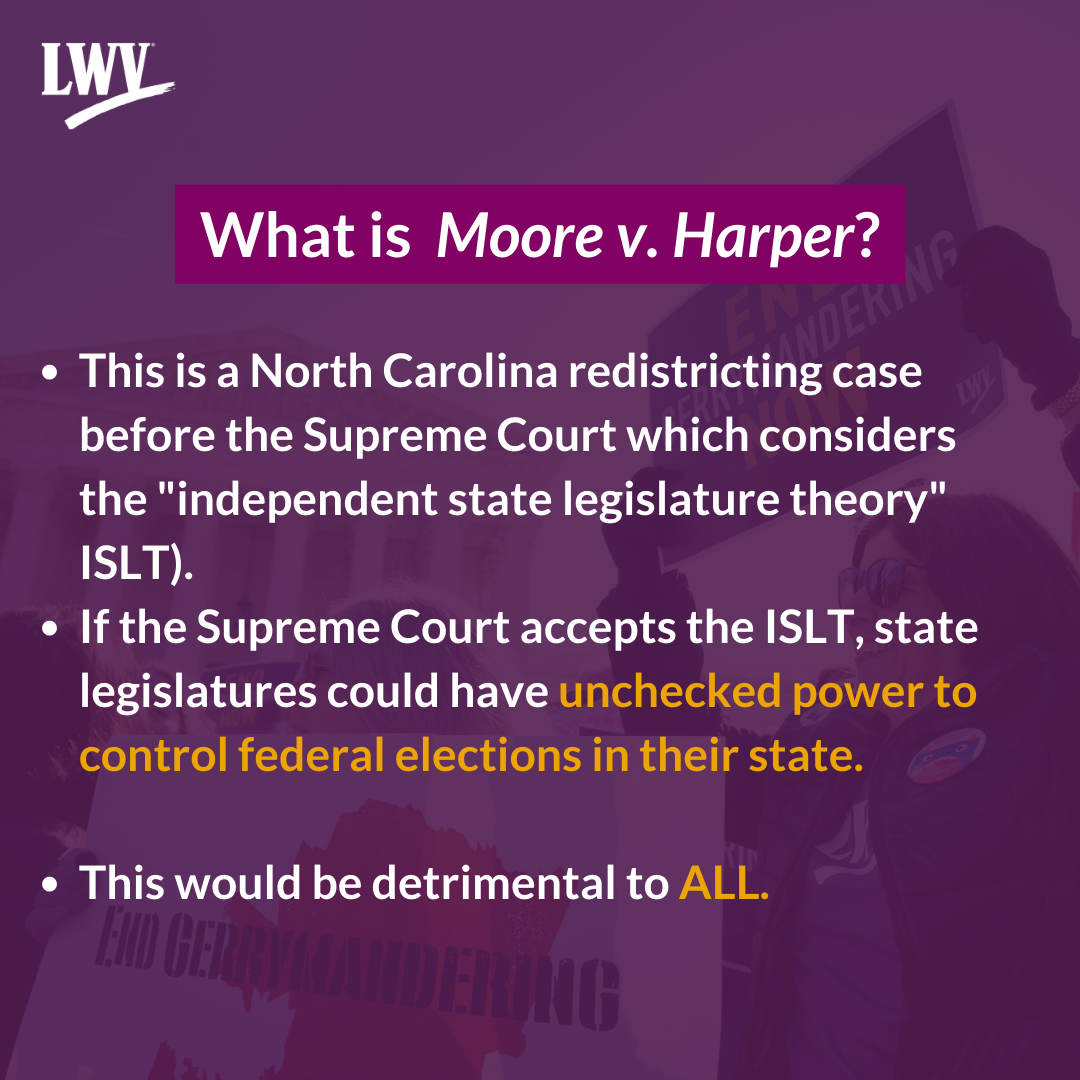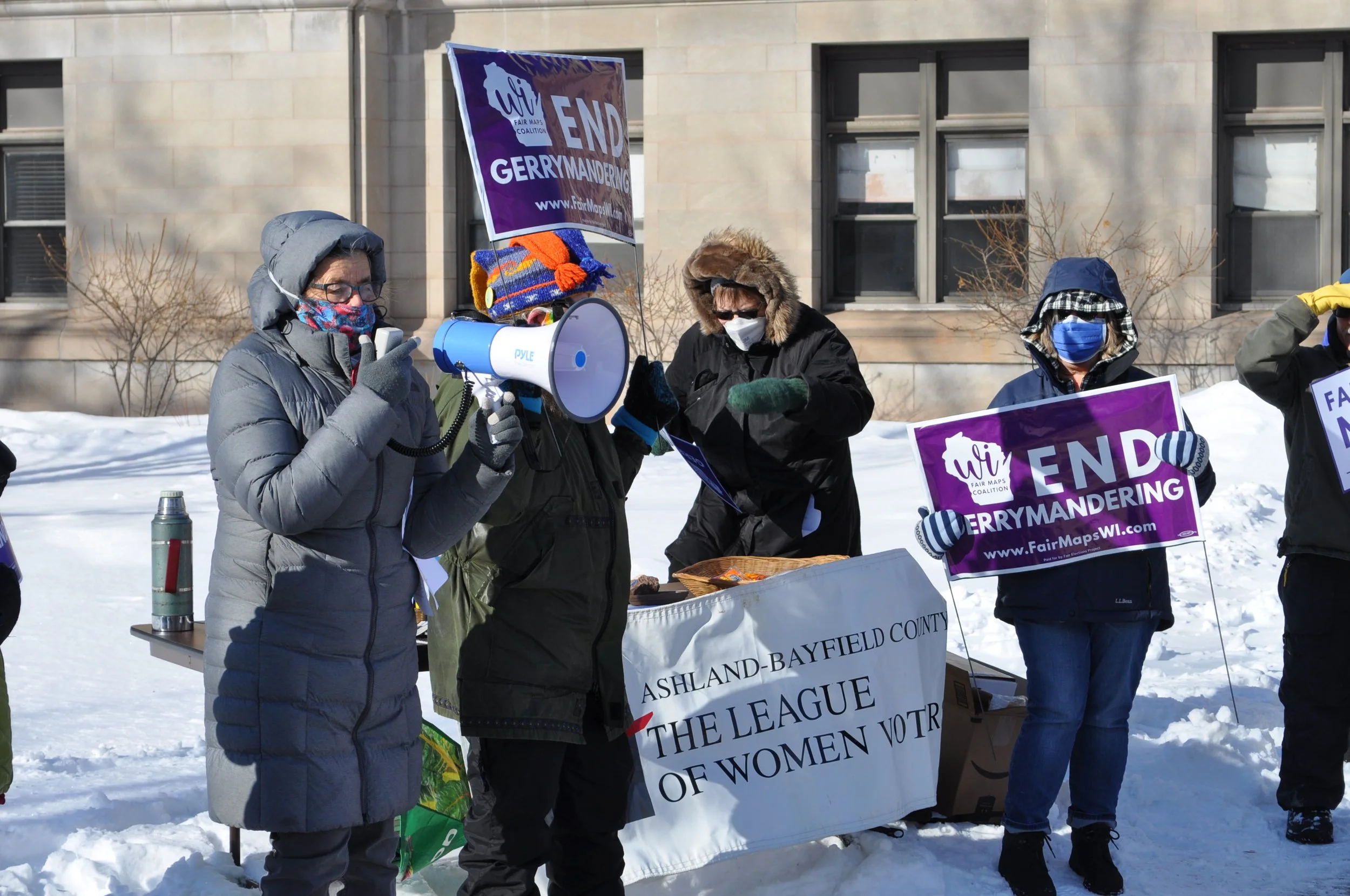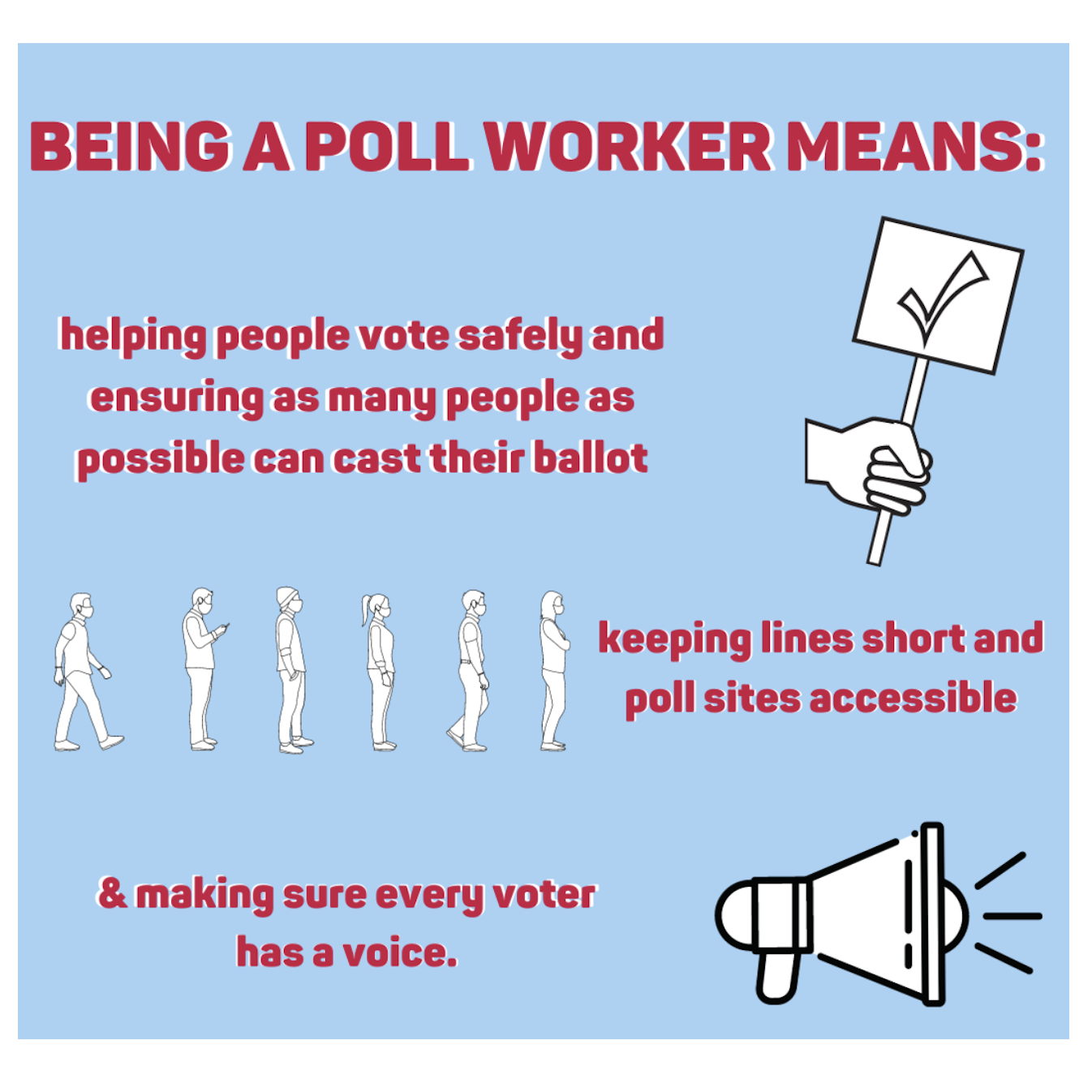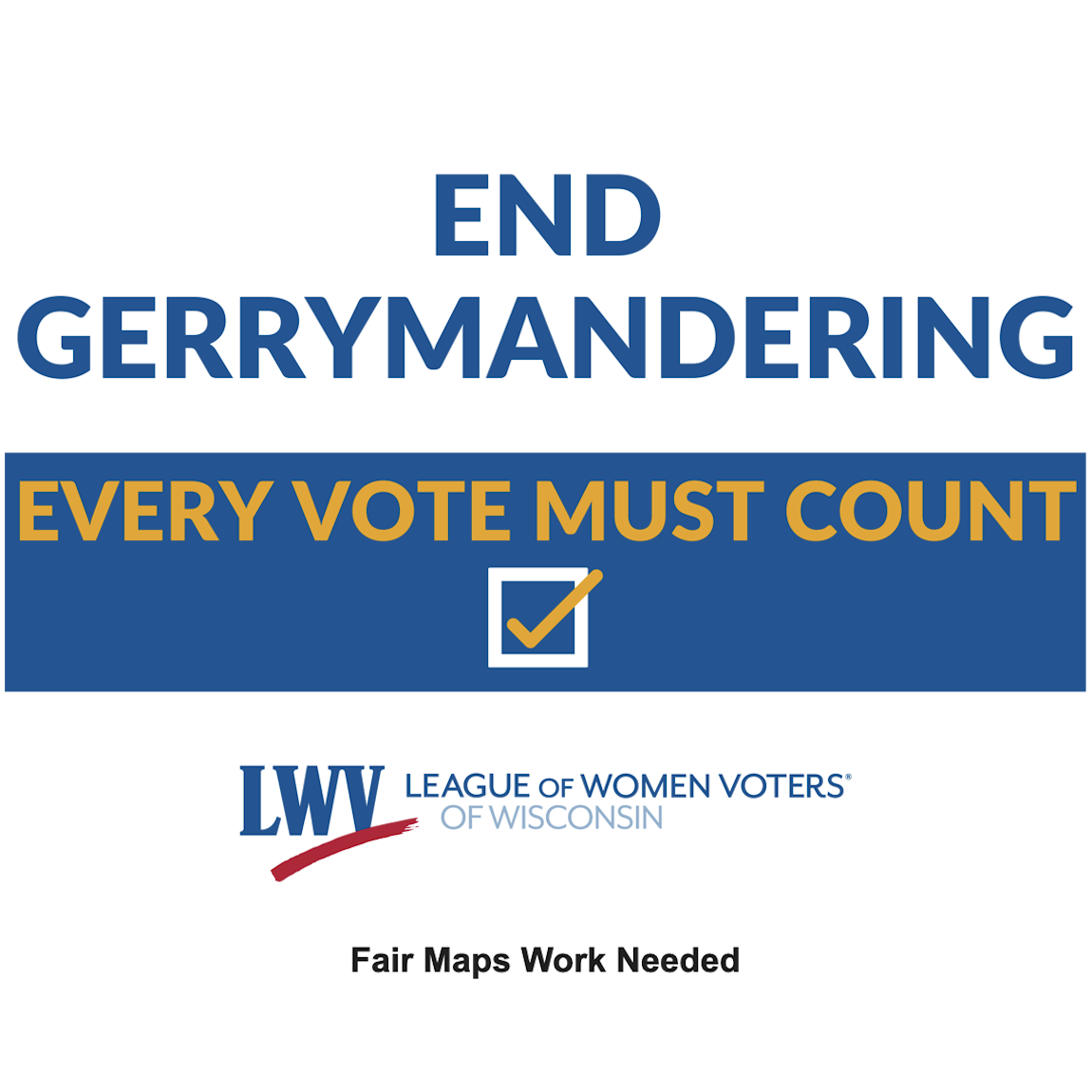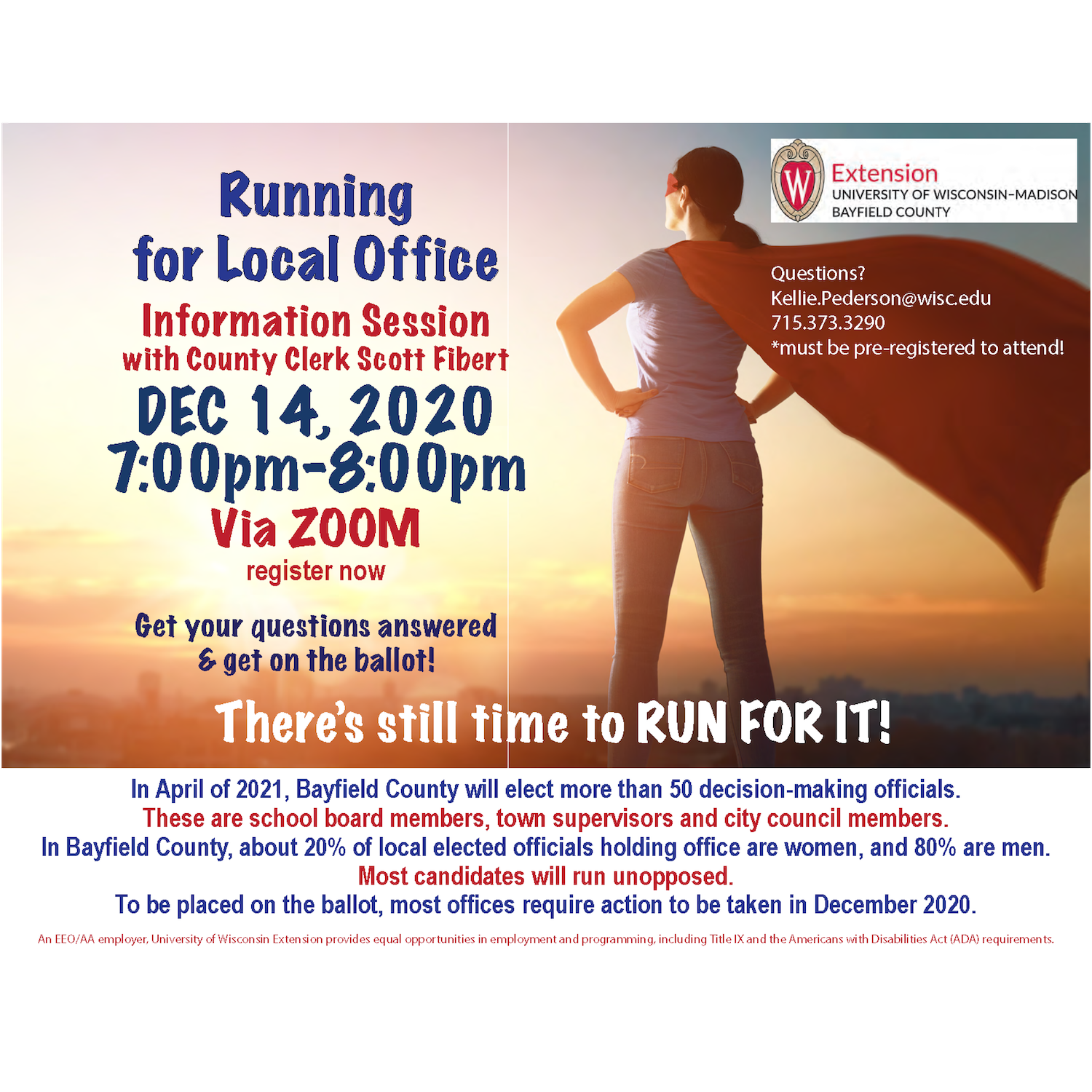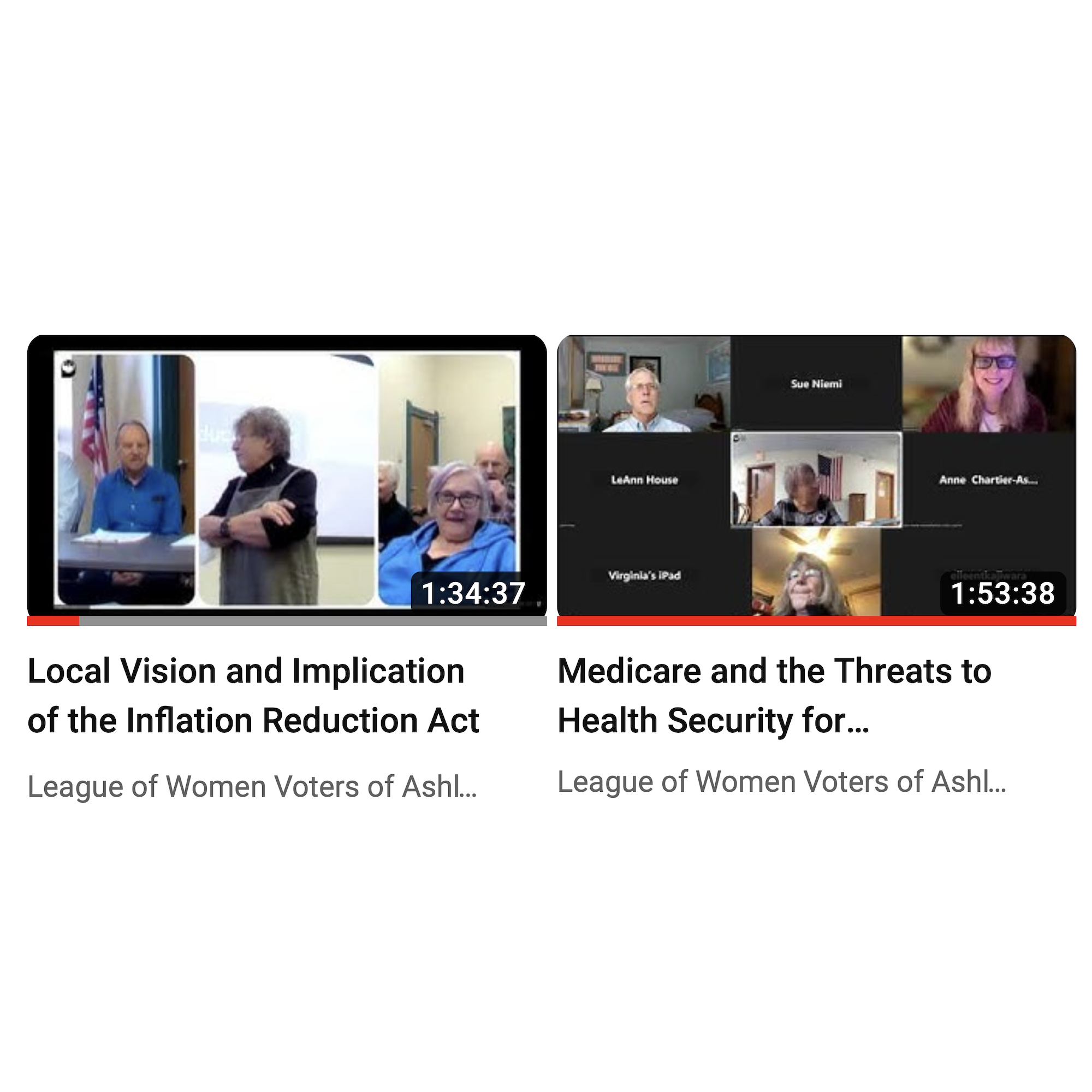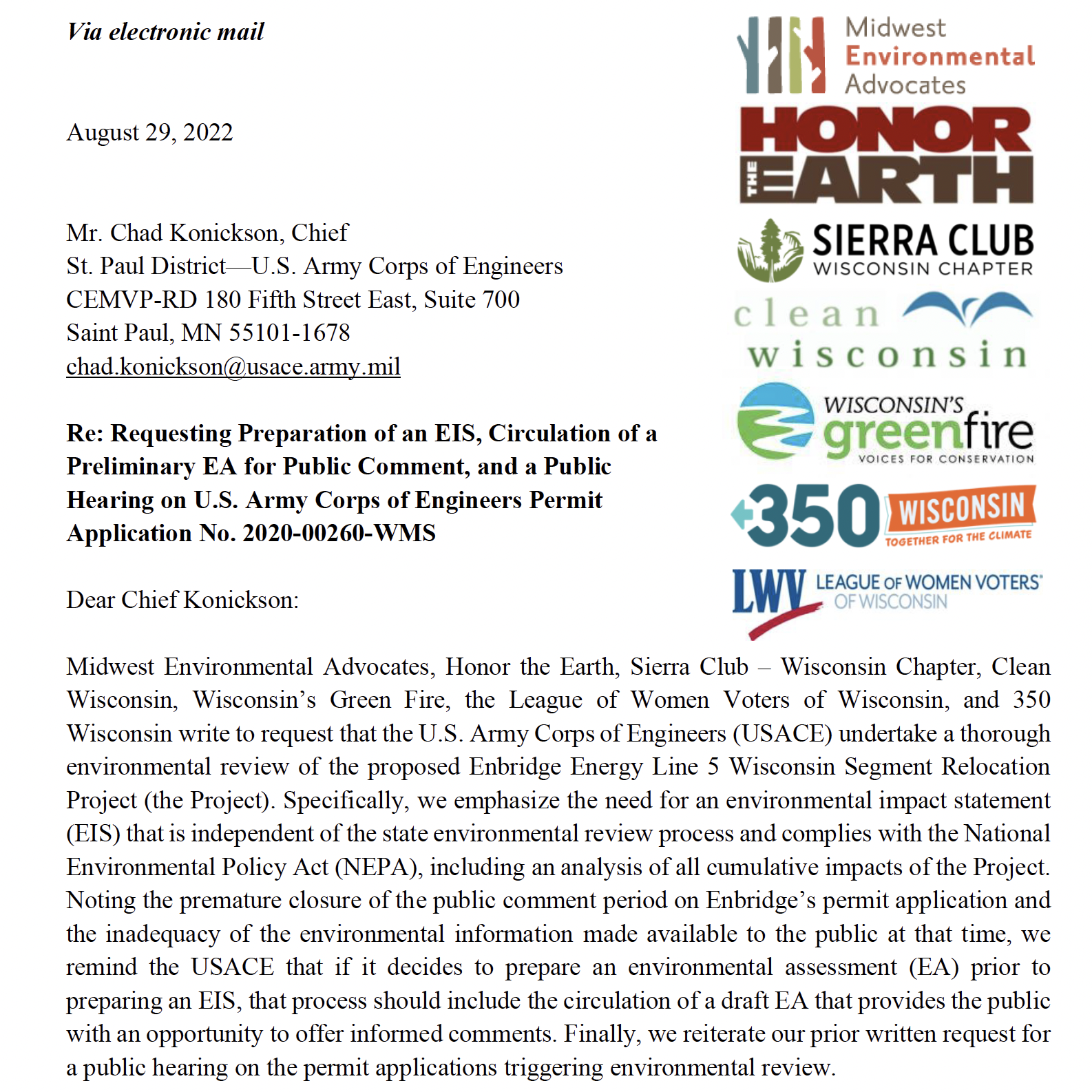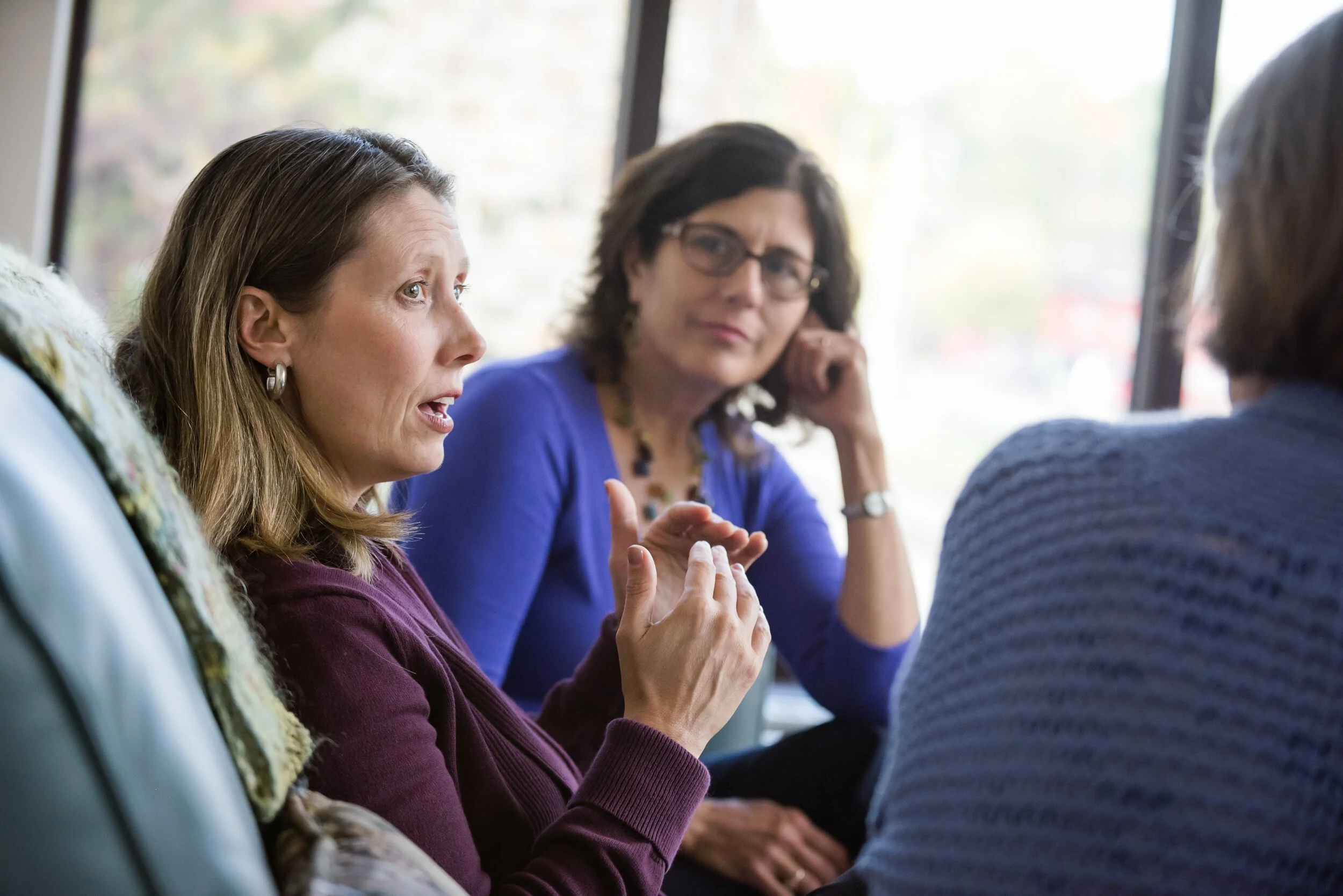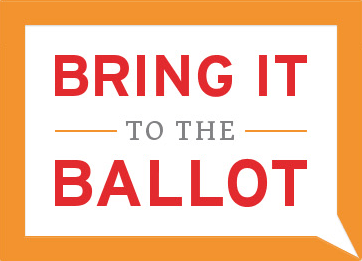What is Moore v. Harper?
/The League of Women Voters believes that all Americans deserve an equal opportunity to make their voices heard in our democracy. As an over 100-year-old nonpartisan voting rights organization, with representation in all 50 states, we empower all Americans to have a say in our government, including elections. Elections are our chance to stand up for what matters most to us and to have an impact on the issues that affect us, our communities, our families, and our futures. At the League, our priority will always be the rights of Americans to participate meaningfully in the political process, and we will fight any attempts to suppress those rights.
In June of 2022, the Supreme Court agreed to hear the case Moore v. Harper, which considers the "independent state legislature” theory or ISLT. Adoption of the independent state legislature theory by the US Supreme Court would be detrimental to all Americans. It would prevent state courts from ruling on actions of the state legislature that govern federal elections, essentially giving state legislatures unchecked authority to set the rules for federal elections, including redistricting maps. State legislatures would be nearly unrestricted in their ability to choose their voters, instead of the other way around. The League of Women Voters joined this case as an amicus to alert the Court about the real-world implications of the ISLT on voters, election workers, and our democracy.
LWV is uniquely positioned to argue to the Court in this case, given our involvement in state rules around elections and educating voters in every state. Represented in over 750 communities, our Leagues rely on the uniformity of election rules to educate voters and ensure that voters can navigate the election process with ease. The LWV also relies on state courts to clarify, modify, or enjoin election laws to protect voters. A Supreme Court ruling adopting the independent state legislature theory could potentially nullify hundreds of prior state court rulings on the constitutionality of election laws. This would result in one set of rules for federal elections—where only the state legislature could speak—and another set for state and local elections—where the state courts could determine legality. Such a divided system would cause immense confusion for election workers and voters alike.

